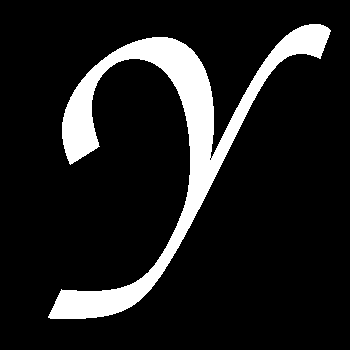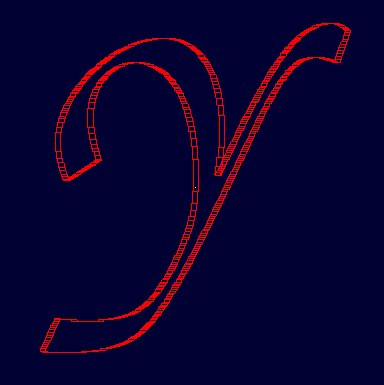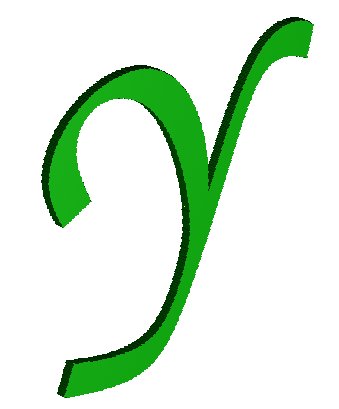Difference between revisions of "EBM"
m (→Inserting ebm in MGED: inserting images) |
m (→Insert an ebm shape in MGED) |
||
| Line 1: | Line 1: | ||
| − | == | + | ==Inserting an ebm shape in MGED== |
===Making an image with GIMP=== | ===Making an image with GIMP=== | ||
First, we must to make an image with GIMP. This image contains the text that should to be loaded into MGED model. | First, we must to make an image with GIMP. This image contains the text that should to be loaded into MGED model. | ||
Revision as of 04:31, 31 December 2008
Contents
Inserting an ebm shape in MGED
Making an image with GIMP
First, we must to make an image with GIMP. This image contains the text that should to be loaded into MGED model.
The image must to have black background and white foreground.
To get a nice ebm, the new GIMP image should to have at least(?) 350 x 350 pixels (width and hight).
In GIMP we must change the Image Mode in to the Indexed Colors with 'Black-white, using with (1 bit) palette' option.
We must this image to save in PNG format. In the Save dialog box we must to check the 'Save with Background' option.
We must to write down somewhere the dimensions in pixels of this image. (eg.: 350x350)
The GIMP image
Converting PNG into x bitmap file
This can be done with the following command at the shell prompt in XTERM window on GNU/Linux systems.
$ png-bw image_name.png > image_name.bw
Warning: color image being converted to B/W!!!
We get this warning abowe and this is good. :)
Inserting ebm in MGED
mged> in text1.s ebm image_name.bw 350 350 20
If we don't type the Dimensions (in pixels) of the image_name.png exactly as it have, the ebm shape that we get will be not good.
The Wireframe of the ebm
If we made a region of this ebm and raytraced it then we can see something like on this picture bellow.


